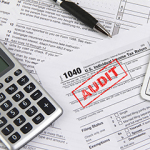September 29, 2017 | Accounting Standards, Business Plans, Valuations

The ultimate indicator of how well a small business is performing is how much the company is worth. Any benchmarking system should include fair market value as one of its primary metrics. With public companies, it’s easy to monitor this metric by tracking share prices and market capitalizations on public stock exchanges. And while it’s not Continue Reading »
August 21, 2017 | Accounting Standards, Fraud Prevention, IRS Regulation, Tax Planning, Tax Preparation

A tax assessment by the IRS is generally presumed to be correct, but a taxpayer can overcome the presumption with proof. However, that situation is reversed when the IRS asserts fraud. In those instances, the IRS must prove, by clear and convincing evidence that fraud exists. Badges of Fraud There is a potential for criminal as well Continue Reading »
August 18, 2017 | Accounting Standards, Financial Planning, IRS Regulation, Tax Planning, Tax Preparation

The top line of your company’s income statement is revenue. So, it tends to receive a lot of attention from investors, lenders and other stakeholders. Why? It’s a telltale sign whether your company is growing or declining based on changes in revenue. Moreover, changes in the composition of revenue can provide insight into your strategic plans. Continue Reading »
July 19, 2017 | Accounting Standards, Valuations

From time to time, every small business owner wonders what the value of their business is. The correct answer can vary, depending on the purpose of the appraisal. Different rules and standards of value may apply in different circumstances. Some of the reasons a business owner may want a valuation include: General business planning, planning Continue Reading »
July 5, 2017 | Accounting Standards, Business Plans, Financial Planning

Small business owners and executives would be smart to obtain business interruption insurance, and possibly contingent business income. The idea is that the policy will compensate the company for lost earnings if a devastating event forces it to temporarily stop operating. However, the calculations and details of business interruption coverage is quite complicated and mounds Continue Reading »
June 26, 2017 | Accounting Standards, Business Plans

Maybe your Maine-based small business is ready to move to a bigger location, and you are interested in obtaining a commercial lease. A commercial real estate lease, like any other contract, can be negotiated. Do not use or accept a form lease submitted to you by another party. The lease should be slanted so that you Continue Reading »
June 23, 2017 | Accounting Standards, Business Plans, Financial Planning, Valuations

When considering the value of your Maine-based small business, you may not have considered what standard is used in the determination. It can be a fairly important question that affects how the valuation turns out. Any qualified valuation report should state the standard of value used in determining the value in the very beginning of Continue Reading »
April 10, 2017 | Accounting Standards, Fraud Prevention, IRS Regulation, Tax Planning, Tax Preparation

Before meeting with taxpayers and their professional representatives, IRS examiners usually do their homework. This includes reviewing any relevant Audit Techniques Guides (ATGs) that typically focus on a specific industry or audit-prone business transaction. ATGs are available to the public even though they are designed to help IRS examiners prepare for audits. So, small business Continue Reading »
March 13, 2017 | Accounting Standards, Business Plans, Financial Planning

Operating in today’s business world can sometimes seem like you’re navigating a legal minefield. You must be aware of, and comply with, numerous laws and regulations. A misstep can result in expensive and time-consuming legal challenges. Filler & Associates have listed below eight legal risks facing businesses. Remember that many states and localities have additional Continue Reading »
January 20, 2017 | Accounting Standards, Business Plans, Financial Planning, Valuations

It is a good idea to know the reasons for a valuation to be able to take advantage of situations when it may be beneficial. Some reasons for obtaining a valuation are a necessity, such as for determining the value of the business interest in an estate. Other reasons are more elective, but nevertheless helpful Continue Reading »